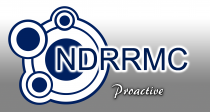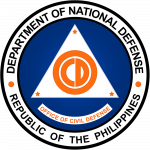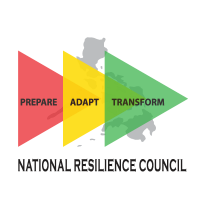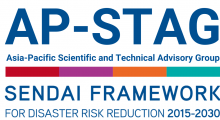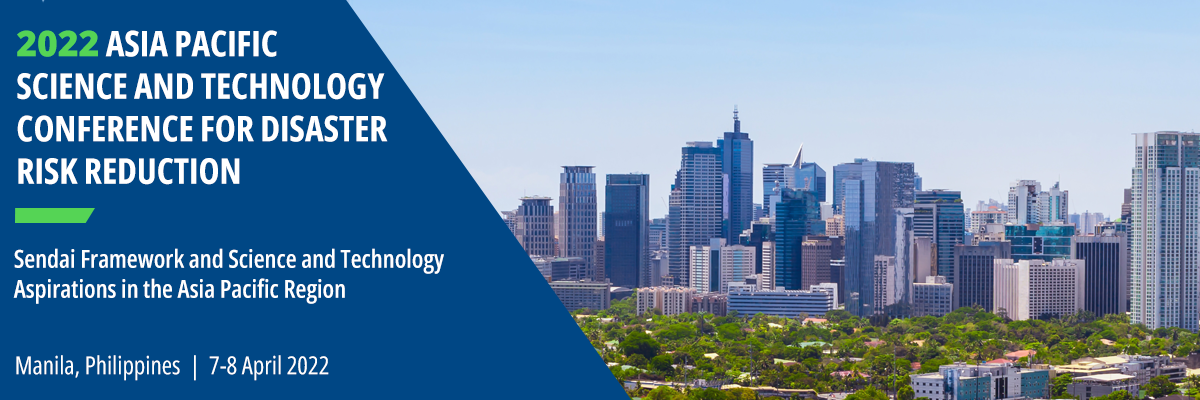
National Disaster Risk Reduction and Management Council
The National Disaster Risk Reduction and Management Council (NDRRMC) is the highest organized and authorized body for Disaster Risk Reduction and Management (DRRM) in the Philippines. Established by virtue of Republic Act 10121 in 2010, the NDRRMC is composed of various government, non-government, civil sector and private sector organizations. The NDRRMC is vested with the overall policy-making, coordination, integration, supervision, monitoring and evaluation functions focusing on DRRM.
Office of Civil Defense
The Office of Civil Defense (OCD), as the implementing arm of the National Disaster Risk Reduction and Management Council, shall have the primary mission of administering a comprehensive national civil defense and disaster risk reduction and management program by providing leadership in the continuous development of strategic and systematic approaches as well as measures to reduce the vulnerabilities and risks to hazards and manage the consequences of disasters.
Department of Science and Technology
Originally established as the National Science and Development Board (NSDB) on 13 June 1958, it was reconstituted as the National Science and Technology Authority (NSTA) on 17 March 1981 with the vision of “A competent and competitive science and technology community with a social conscience.” With the agency’s elevation to full cabinet stature by virtue of Executive Order 128 signed on 30 January 1987, the functions and responsibilities of DOST expanded correspondingly to include the following:
- Pursue the declared state policy of supporting local scientific and technological effort
- Develop local capability to achieve technological self-reliance
- Encourage greater private sector participation in research and development
The Department of Science and Technology (DOST) is the premiere science and technology body in the country charged with the twin mandate of providing central direction, leadership and coordination of all scientific and technological activities, and of formulating policies, programs and projects to support national development.
National Resilience Council
The National Resilience Council (NRC) is a public-private partnership that promotes leadership and governance based on knowledge development and the application of science and technology-based solutions to the multiple challenges of disaster risk. It supports trans-disciplinary action research and applies training, coaching, and mentoring to enhance the internal capacities of local government units to build local resilience. Moreover, it fosters coalition-building and high-level collaboration between government and industry.
NRC recognizes that the complex and dynamic nature of risk and the Philippines’ unique patterns of development require the building of a culture of prevention. It addresses this by bridging critical gaps between science, policy, and practice through its Resilient Local Government Units Program, a two-track three-year program designed to build capacity in evidence-informed risk governance and was cited as one of the Sendai Framework Voluntary Commitments’ good practices; the Resilience Scorecard, which is a system of metrics featuring over 90 indicators that are based on local and international resilience rating standards; and the Adopt-a-City Program, which highlights an innovative pathway for corporations to collaborate more strategically with local governments.
United Nations Office for Disaster Risk Reduction – Regional Office for Asia and the Pacific
The UNDRR Regional Office for Asia and the Pacific (ROAP) supports disaster risk reduction efforts across the Asia-Pacific region. ROAP works with governments, United Nations Country Teams, regional and international organizations, and other stakeholder groups, to protect people from disasters, build resilience and support sustainable development.
ROAP covers a total of 39 countries and 13 territories. It is based in Bangkok, Thailand, with a sub-regional office in Suva, Fiji, a liaison office in Kobe, Japan, and an office for North-East Asia in Incheon, Republic of Korea.
UNDRR Asia-Pacific Scientific and Technical Advisory Group
In light of the importance of science and technology to the achievement of the Sendai Framework for Disaster Risk Reduction 2015-2030, the UN Office for Disaster Risk Reduction (UNDRR) established the Global Scientific and Technical Advisory Group and its regional sub-groups. Guided by their own regional roadmap, the Asia-Pacific Scientific and Technical Advisory Group (AP-STAG) was created to contextualize global efforts to address the unique needs of the region and to support the coherent implementation of the post-2015 frameworks.
AP-STAG comprises selected disaster experts from Asian countries and provides policy advisory services to governments and other stakeholders on appropriate technology and its application in decision making. Advisory services include: risk governance, community-based disaster risk management, urban risk management, earthquake risk mitigation, private sector involvement, climate change adaptation, disaster and environmental education and disaster resistant building design. The group also provides advice on higher education curriculum development in disaster risk reduction.
ARISE Philippines
ARISE – Philippines is a Local Network of ARISE (the Private Sector Alliance for Disaster Resilient Societies). ARISE is a United Nations Office for Disaster Risk Reduction (UNDRR) – led network of private sector entities whose members voluntarily commit to support and implement the Sendai Framework, aligned with the 2030 Agenda for Sustainable Development and its Sustainable Development Goals (SDGs), Paris Climate Agreement, New Urban Agenda and Agenda for Humanity.
Organized through the initiatives of SM Prime Holdings Inc. and with support from UNDRR, the network was launched in the Top Leaders Forum (TLF) 2015 in Pasay City, Philippines.
To date, it has 146 member private sector organizations that share the vision of a resilient, prosperous future where fewer lives are lost to disasters, capital assets and investments are risk-informed, and infrastructure is resilient to a natural and man-made hazards.
